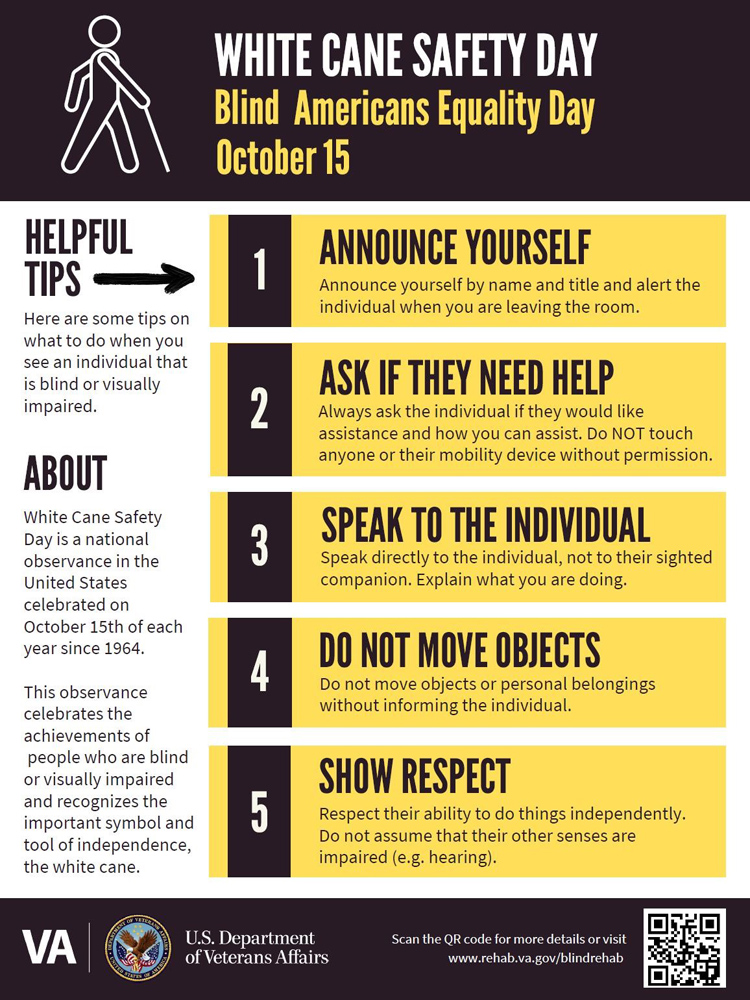October is World Blindness Awareness Month

October is World Blindness Awareness Month. According to the World Health Organization (WHO) more than 314 million people in the world have a severe visual impairment, including 37 million who are blind. Some of the most common causes of vision loss in the U.S. include diabetes, macular degeneration, glaucoma, and traumatic brain injury. This observance aims to increase awareness of the importance of vision care services as well as the availability of services for those with vision loss.
National White Cane Safety Day is on October 15 annually and celebrates the achievements of people with vision loss as well as recognizing the importance of the white cane as a symbol of independence. The “White Cane Law” (PA State Law Section 3549) states the driver of a vehicle shall yield the right-of-way (slow down and prepare to stop) to totally or partially blind pedestrians, whether they have a white cane or a guide dog, or are being led by others.
VA Blind Rehabilitation Service offers comprehensive services and specialized equipment to assist eligible veterans with vision impairment in developing the skills needed for personal independence and successful integration into the community and family environment. To refer a veteran experiencing vision loss, contact Andrea Stephens, Visual Impairment Services Team Coordinator, Finger Lakes VAMC at 585-393-7131.
Below are some helpful tips on what to do when you see an individual that is blind or visually impaired:
•Announce yourself by name and title and alert the individual when you are leaving the room.
•Always ask the individual if they would like assistance and how you can assist. Do NOT touch anyone or their mobility device without permission.
•Speak directly to the individual, not to their sighted complanion. Explain what you are doing.
•Do not move objects or personal belongings without informing the individual.
•Respect their ability to do things independently. Do no assume their their other senses are impaired (e.g. hearing).
Provided information



